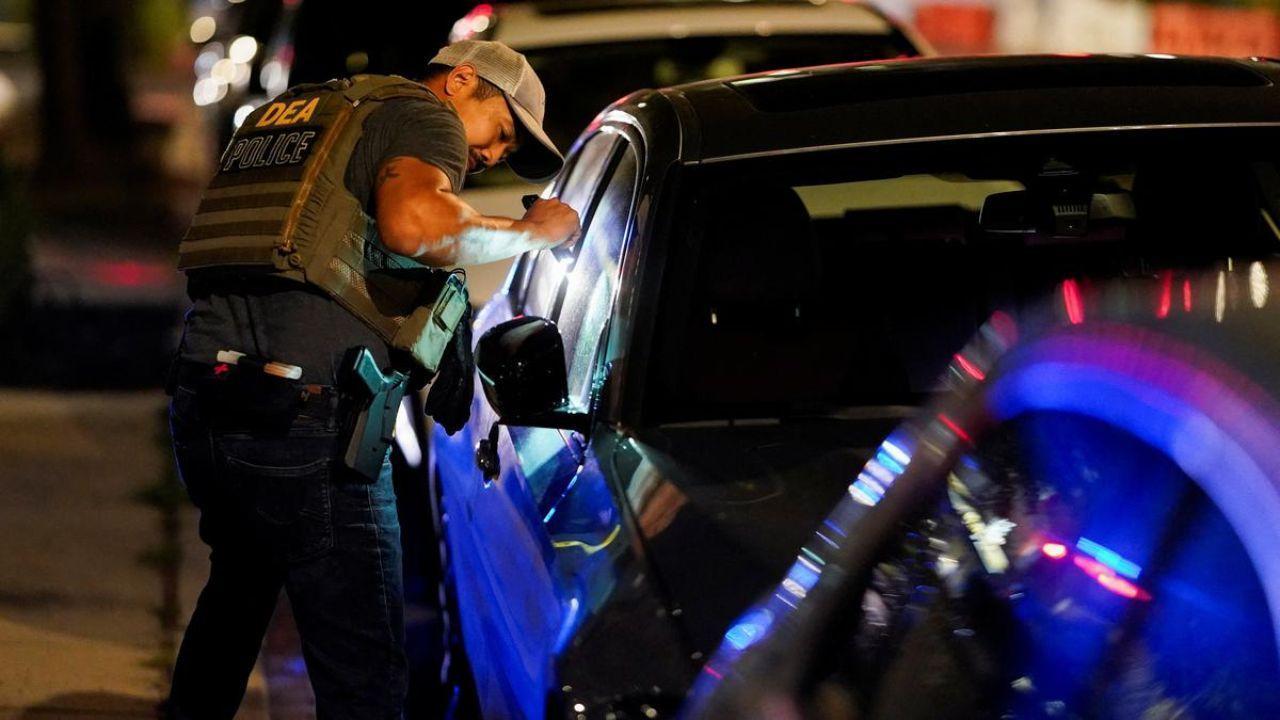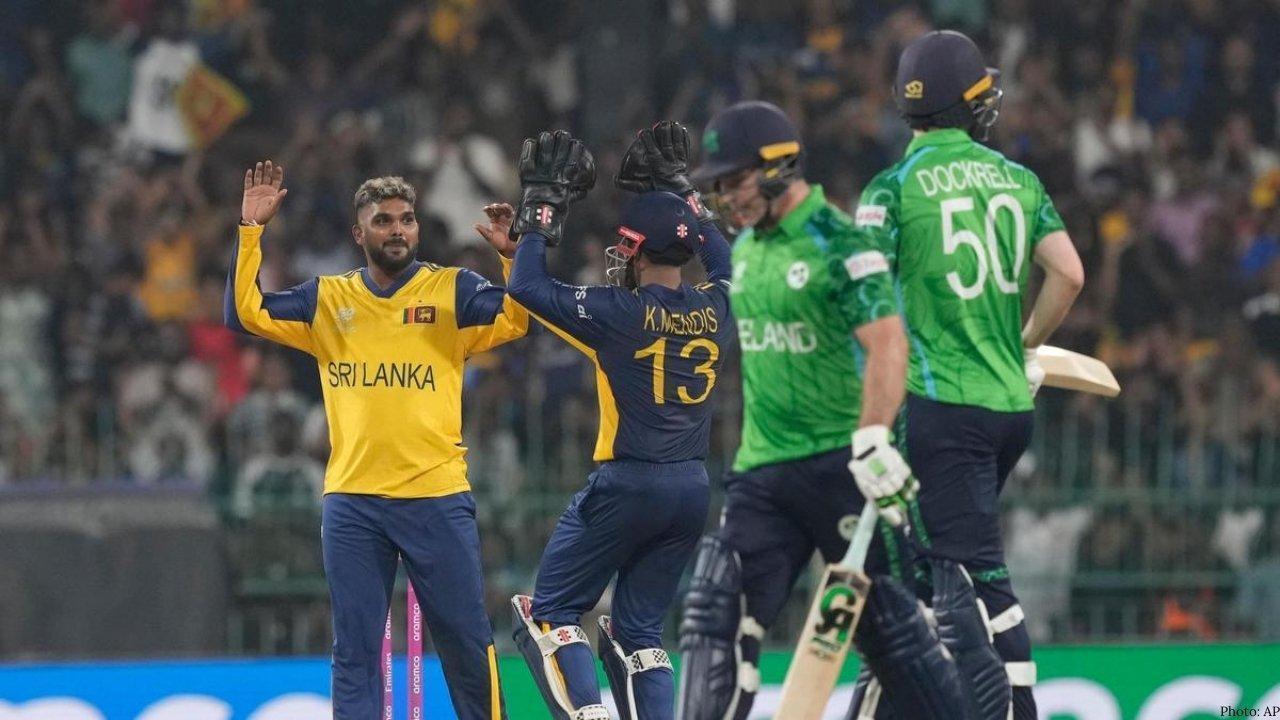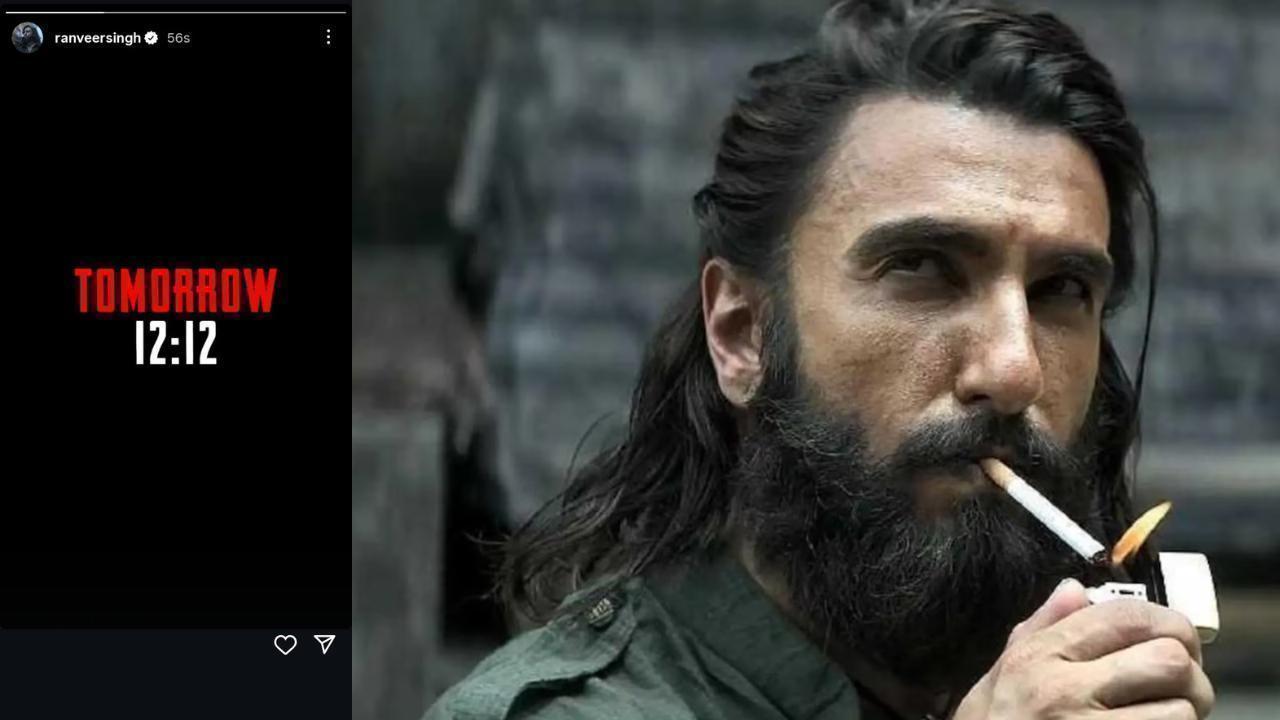You have not yet added any article to your bookmarks!

Join 10k+ people to get notified about new posts, news and tips.
Do not worry we don't spam!

Post by : Jyoti Gupta
Photo:Reuters
Washington, D.C., is at the center of a dramatic power struggle as President Donald Trump moves to take direct control of the city’s police department. Federal troops are patrolling major areas, and legal battles have erupted as the city pushes back against what many call an unprecedented federal intervention.
The move began earlier this week when President Trump announced that his administration would assume authority over the Metropolitan Police Department of the District of Columbia. Alongside this announcement, the White House activated around 800 National Guard troops to patrol the capital, stationing Humvees near landmarks such as the Washington Monument, Union Station, Nationals Park, and even busy neighborhood streets. Federal officials said the troops would not make arrests themselves but would support police operations, stand guard during arrests, and deter violent crime.
Trump justified his actions by arguing that crime in Washington, D.C., had reached alarming levels. At one point, he even claimed the murder rate in Washington was higher than in Islamabad, Pakistan. However, city officials strongly disputed this reasoning. They pointed out that the district recorded its lowest violent crime levels in 30 years last year, and the trend continued downward this year. According to them, the federal intervention was unnecessary, politically motivated, and designed to project strength rather than address actual security needs.
Initially, Mayor Muriel Bowser allowed some cooperation with federal actions. For example, city workers helped clear homeless encampments and cooperated with federal immigration enforcement early on. The situation changed abruptly when the administration overstepped: Attorney General Pam Bondi announced the head of the DEA would become the temporary police commissioner, sidelining Washington’s police chief. This marked the decisive turning point that spurred Bowser and other leaders to actively resist federal control.
This prompted an immediate lawsuit from the District of Columbia. The case went before U.S. District Judge Ana Reyes, who listened to hours of arguments from both sides. Judge Reyes signaled that she believed the law does not give the president the authority to fully take over D.C.’s police department. However, she also suggested that the president does have greater authority over Washington than he would in any other American city because of the district’s unique status as a federal territory established by Congress.
Facing a likely court defeat, the Trump administration changed its stance: on Friday, federal officials agreed the current police chief could stay. Importantly, this retreat was partial—Attorney General Bondi also mandated D.C. police fully cooperate with federal immigration enforcement, regardless of local law. This new federal condition became a sticking point for city officials, as it undermined the district’s sanctuary city policy.
The legal battle has raised larger questions about presidential power and the future of federal-local relations. Washington, D.C. is not a state, which makes it more vulnerable to federal intervention than other cities. Presidents historically have avoided direct control over local police, but Trump’s move could set a precedent for how future administrations deal with cities that resist federal policies. Many observers believe this may be a test case or blueprint for similar interventions in other Democratic-led cities.
Beyond the courtroom, the federal takeover has sparked protests among D.C. residents. Some demonstrators gathered near the National Mall and outside government buildings to voice their opposition. For many, the heavy police and military presence evoked painful historical memories when majority-Black cities were portrayed as violent or chaotic in order to justify harsh policing. Critics argue that Trump’s approach relies on these narratives to win political points while deepening mistrust between communities and law enforcement.
At the same time, the White House insists the federal deployment is about safety. Trump has argued that federal troops and stronger police authority are necessary to protect families, reduce crime, and “restore order” in the nation’s capital. One of his stated goals is to remove large homeless populations from downtown areas, relocating them far from the city center. Advocates for the homeless community say this is less about safety and more about making the city appear cleaner for political reasons.
Currently, Trump’s authority to keep National Guard troops in Washington without congressional approval lasts for 30 days. If he seeks to extend their presence beyond that period, he will need support from Congress. Whether lawmakers, particularly Republicans, will back him remains uncertain. Some within his party are hesitant to endorse federal takeovers of local institutions, fearing backlash from voters concerned about overreach.
This confrontation in Washington is not just about law enforcement. It is also about power, identity, and democracy. On one side, the Trump administration argues it is responding to a crisis with decisive action. On the other side, city officials and many residents say there is no crisis at all — and that the real danger lies in undermining local control and eroding democratic norms.
What happens next is unclear. The city has won a temporary reprieve with its police chief still in place, but federal oversight remains heavy. Troops continue to patrol public spaces, federal orders still guide immigration enforcement, and the administration has left open the possibility of renewing or expanding its actions.
As Washington, D.C., navigates this uncertain moment, the broader country is watching closely. For other cities — particularly large, Democratic-led ones — the events unfolding in the capital may serve as a warning of how the federal government could attempt to assert authority under claims of law and order. Whether this becomes a singular episode or the beginning of a new political strategy will depend on how the courts, Congress, and the public respond in the coming weeks.










Dalal Street Spotlight: Top 10 Stocks Investors Are Watching as Markets Open on a High
Indian stock markets begin the week with strong momentum, and several blue-chip and mid-cap stocks a

Market Movers Today: Key Stocks Set To Watch In Indian Markets
Indian equity markets are poised for active trading as several major companies, including Bharti Air

Milan Welcomes the World: Inside the Grand Opening Ceremony of the 2026 Winter Olympics
The 2026 Winter Olympics opening ceremony in Milan marked a defining moment for global sport, blendi

Unfolding Market Drama: Sensex & Nifty Trade Volatility Amid Budget Fallout and India-US Trade Breakthrough
Indian equity markets exhibited high volatility this week as the 2026 Union Budget triggered sharp s

Dhurandhar 2 Teaser Countdown Ignites Fan Frenzy: All You Need to Know
The highly anticipated sequel to the blockbuster Dhurandhar is building intense excitement as the Dh

Vietnam Overtakes Thailand as Top Choice for Chinese Tourists
Vietnam has quietly surpassed Thailand as the favorite destination for Chinese tourists in 2025.